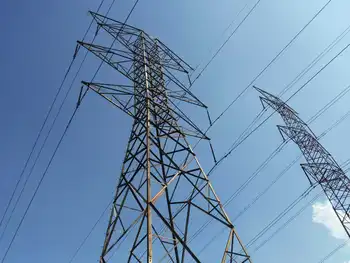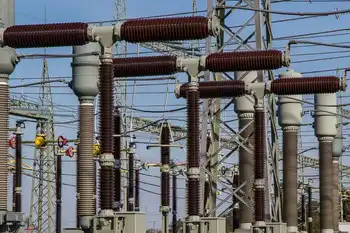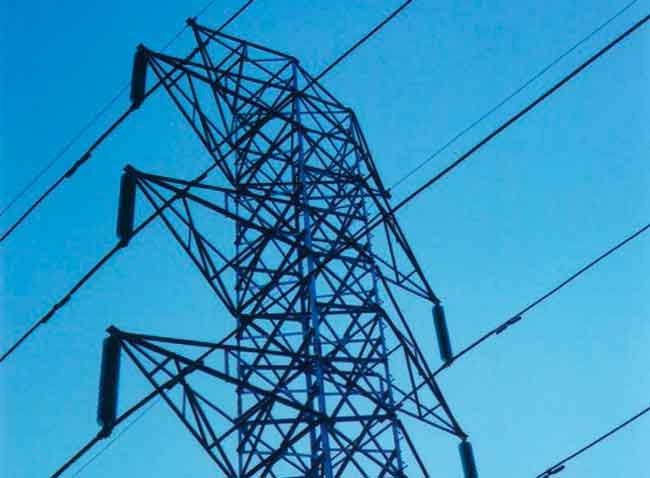Site C Dam Update outlines hydroelectric budget overruns, geotechnical risks, COVID-19 construction delays, BC Hydro timelines, cancellation costs, and First Nations treaty rights concerns affecting renewable energy, ratepayers, and Peace Valley impacts.
Key Points
Overview of Site C costs, delays, geotechnical risks, and concerns shaping BC Hydro hydroelectric plans.
✅ Cost to cancel estimated at least $10B
✅ Final budget now about $16B; completion pushed to 2025
✅ COVID-19 and geotechnical risks drove delays and redesigns
The cost to cancel a massive B.C. energy development project would be at least $10 billion, provincial officials revealed in an update on the future of Site C.
Thus the project will go ahead, Premier John Horgan and Energy Minister Bruce Ralston announced Friday, but with an increased budget and timeline.
Horgan and Ralston spoke at a news conference in Victoria about the findings of a status report into the hydroelectric dam project in northeastern B.C.
Peter Milburn, former deputy finance minister, finished the report earlier this year, but the findings were not initially made public.
$10B more than initial estimate
On Friday, it was announced that the project's final price tag has once again ballooned by billions of dollars.
Site C was initially estimated to cost $6 billion, and the first approved budget, back in 2014, was $8.775 billion. The budget increased to $10.8 billion in 2018.
But the latest update suggests it will cost about $16 billion in total.
And, in addition to a higher budget, the date of completion has been pushed back to 2025 – a year later than the initial target.
Among the reasons for the revisions, according to the province, is the impact of COVID-19. While officials did not get into details, there have been multiple cases of the disease publicly reported at Site C work camps.
Additionally, fewer workers were permitted on site to allow for physical distancing, and construction was scaled back.
Also cited as a cause for the increased cost were "unforeseeable" geotechnical issues at the site, which required installation of an enhanced drainage system.
Speaking to reporters Friday, the premier deflected blame.
“Managing the contract the BC Liberals signed has been difficult because it transfers the vast majority of the geotechnical risk back to BC Hydro,” said Horgan.
Former Premier Christy Clark vowed to get the project to a point of no return, and in 2017 the NDP decided to continue with the project because of the cost of cancelling it.
The Liberals now say the clean energy project should continue, but deny they shoulder any of the blame.
“Someone has to take ownership – and it's got to be government in power,” said MLA Tom Shypitka, BC Liberal critic for energy.
There are also several reviews underway, including how to change contractor schedules to reflect delays and potential cost impacts from COVID-19, and how to keep the work environment safe during the pandemic.
A total of 17 recommendations were made in Milburn's report, all of which have been accepted by BC Hydro and the province.
Among these recommendations is a restructured project assurance board with a focus on skill-specific membership and autonomy from BC Hydro.
Cost of cancelling the project
The report looked into whether it would be better to scrap the project altogether, but the cost of cancelling it at this point would be at least $10 billion, Horgan and Ralston said.
That cost does not include replacing lost energy and capacity that Site C's electricity would have provided, according to the province.
A study conducted in 2019 suggested B.C. will need to double its electricity production by 2055, especially as drought conditions are forcing BC Hydro to adapt power generation.
The NDP government says the cost to ratepayers of cancelling the project would be $216 a year for 10 years. Going forward will still have a cost, but instead, that payment will be split over more than 70 years, the estimated lifetime of Site C, meaning BC Hydro customers will pay about $36 more a year once the site goes live, the NDP says, even as cryptocurrency mining raises questions about electricity use.
“We will not put jobs at risk; we will not shock people's hydro bills,” said Horgan.
"Our government has taken this situation very seriously, and with the advice of independent experts guiding us, I am confident in the path forward for Site C," Ralston said.
"B.C. needs more renewable energy to bridge the electricity gap with Alberta and electrify our economy, transition away from fossil fuels and meet our climate targets."
The minister said the site is currently employing about 4,500 people.
Arguments against Site C
While there are benefits to the project, there has also been vocal opposition.
In a statement released following the announcement that the project would go ahead, the Union of B.C. Indian Chiefs suggested the decision violated the premier's commitment to a UN declaration.
"The Site C dam has never had the free, prior and informed consent of all impacted First Nations, and proceeding with the project is a clear infringement of the treaty rights of the West Moberly First Nation," the UBCIC's secretary treasurer said.
Kukpi7 Judy Wilson said the UN's Committee on the Elimination of Racial Discrimination has called for a suspension of the project until it has the consent of Indigenous peoples.
"B.C. did not even attempt to engage First Nations about the safety risks associated with the stability of the dam in the recent reviews," she said.
"It is unfathomable that such clear human rights violations are somehow OK by this government."
Chief Roland Wilson of the West Moberly First Nation said he was disappointed the province didn’t consult his and other communities prior to making this announcement. In an interview with CTV News, he said he was offered an opportunity to join a call this morning.
“We signed a treaty in 1814,” he said. “Our treaty rights are being trampled on.”
Wilson said his nation has ongoing concerns about safety issues and the plans to flood the Peace Valley. West Moberly is in a bitter court battle with the province.
At the BC Legislature, Green Party Leader Sonia Furstenau slammed the government’s decision.
“It is an astonishingly terrible business case in any circumstances, but considering that we lose the agricultural land, the biodiversity, the traditional treaty lands of Treaty 8, this is particularly catastrophic,” she told reporters.
She went on to accuse the NDP government of keeping bad news from the public. She alleged the NDP knew of serious problems before last fall’s unscheduled election, but chose not to release information.
Prior to the decision former BC Hydro president and a former federal fisheries minister are among those who added their voices to calls to halt work on the dam.
They were among 18 Canadians who wrote an open letter to the province calling for an independent team of experts to explore geotechnical problems at the site.
In the letter, signed in September, the group that also included Grand Chief Stewart Phillip of the UBCIC wrote that going ahead would be a "costly and potentially catastrophic mistake."
According to Friday's update, independent experts have confirmed the site is safe, though improvements have been recommended to enhance oversight and risk management.
Earlier in the project, a B.C. First Nation claimed it was a $1-billion treaty violation, though an agreement was reached in 2020 after the province promised to improve land management and restore traditional place names in areas of cultural significance.
The Prophet River First Nation will also receive payments while the site is operating, and some Crown land will be transferred to the nation as part of the agreement.
Additionally, residents of a tiny community not far from the site is suing the province over two slow-moving landslides they claim caused property values to plummet.
Nearly three dozen residents of Old Fort are behind the allegations of negligence and breach of their charter right to security of person. The claim is tied to two landslides, in 2018 and 2020, that the group alleges were caused by ground destabilization from construction related to Site C.
One of the landslides damaged the only road into the community, leaving residents under evacuation for a month.
Related News












